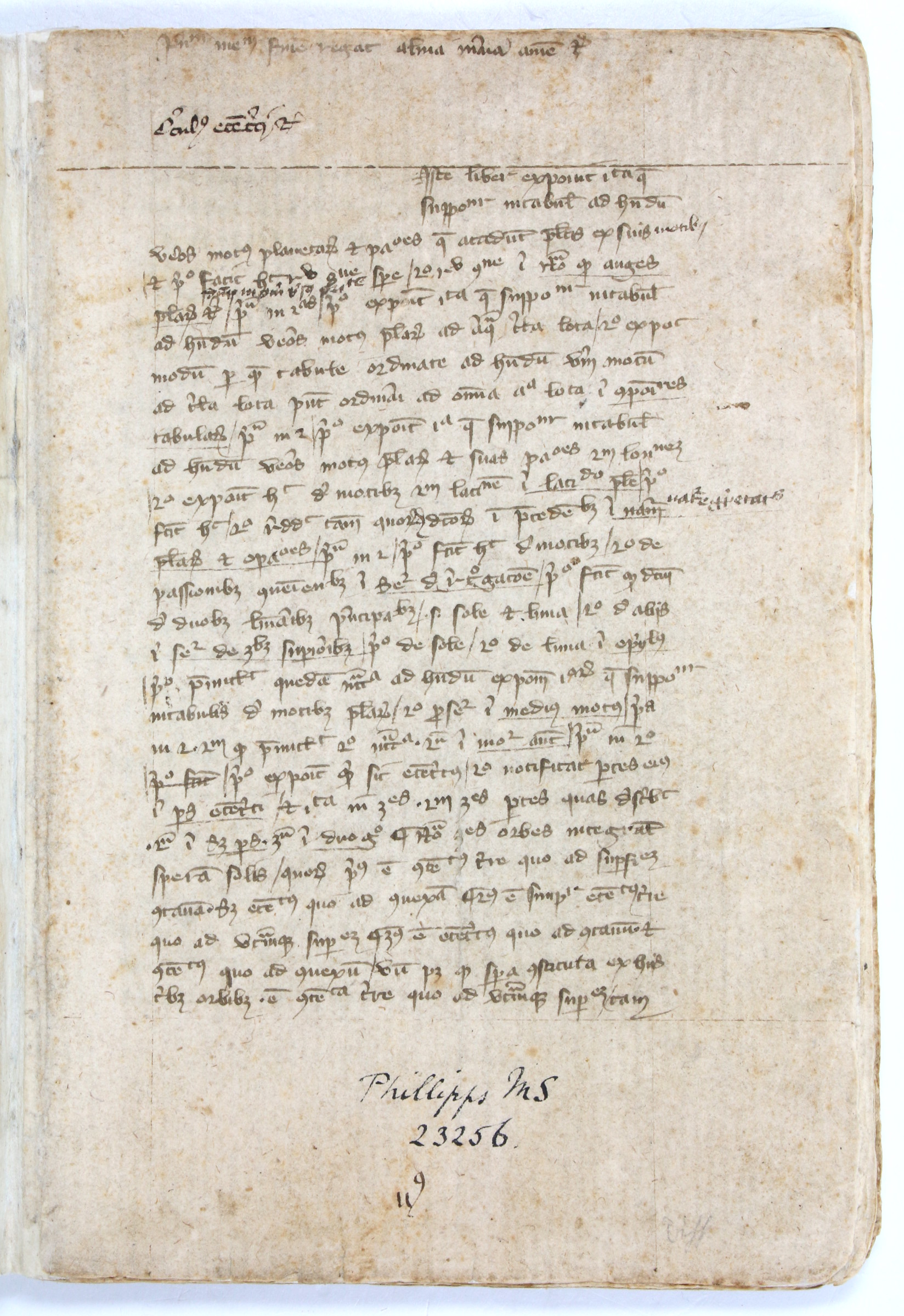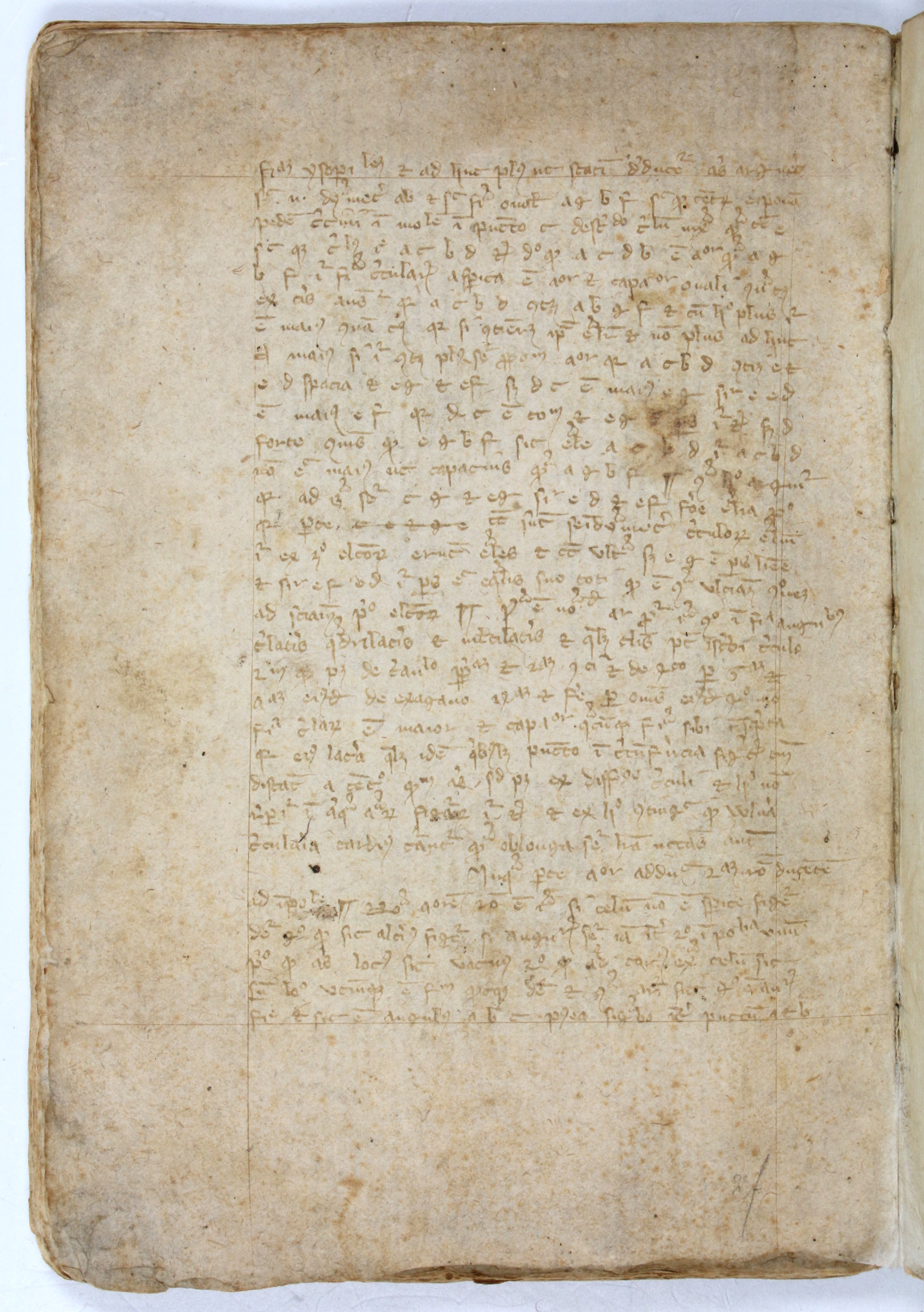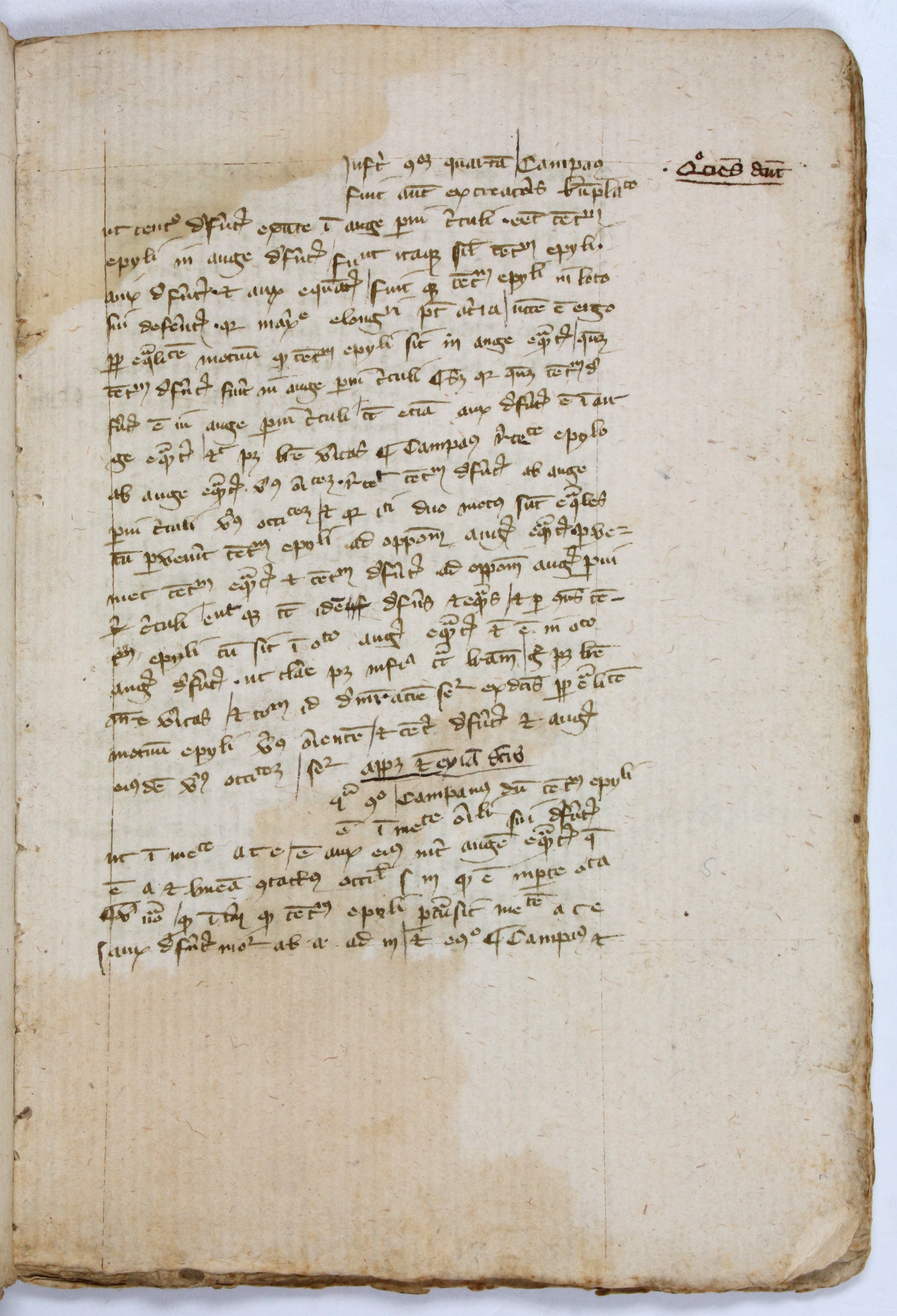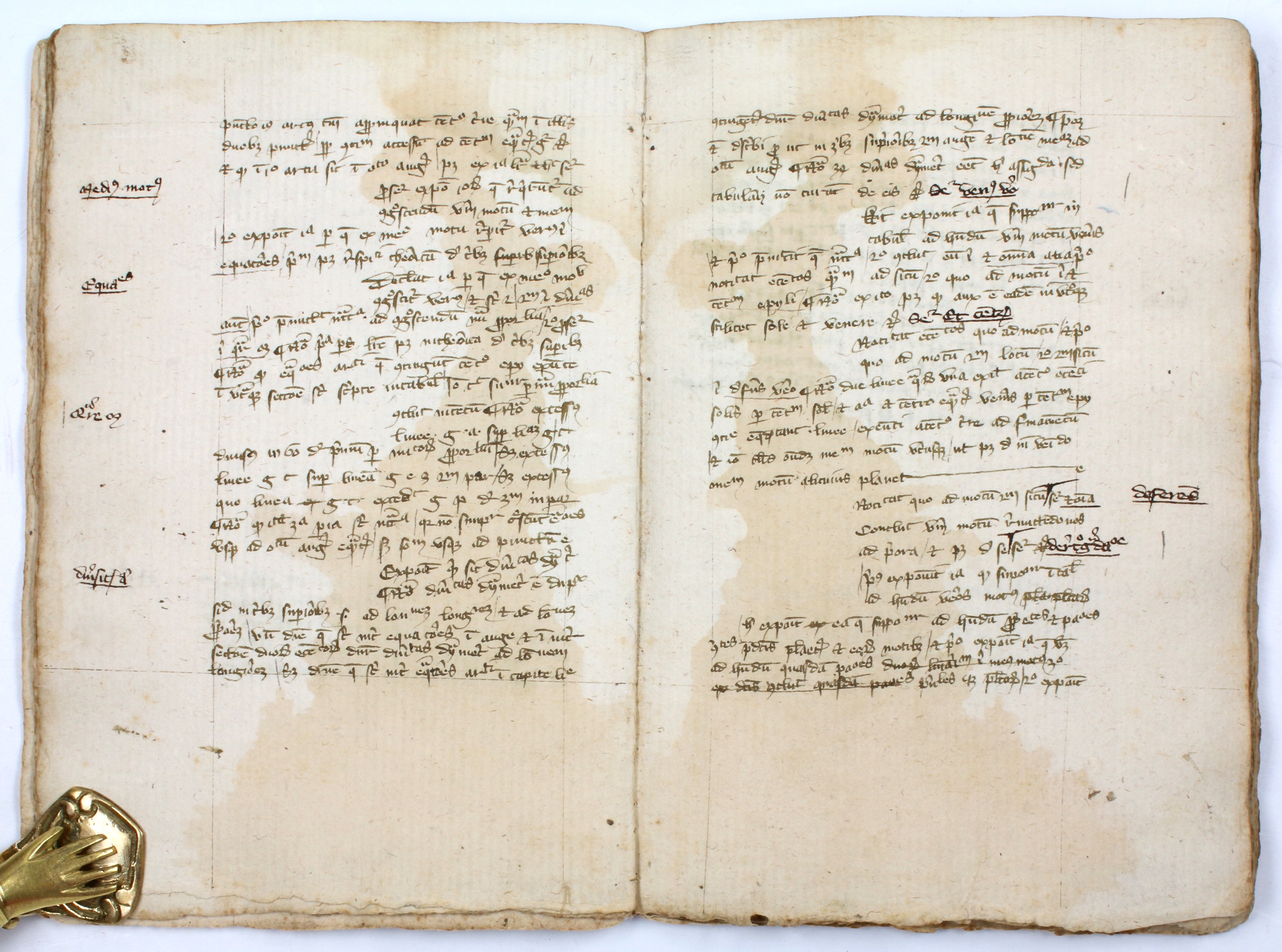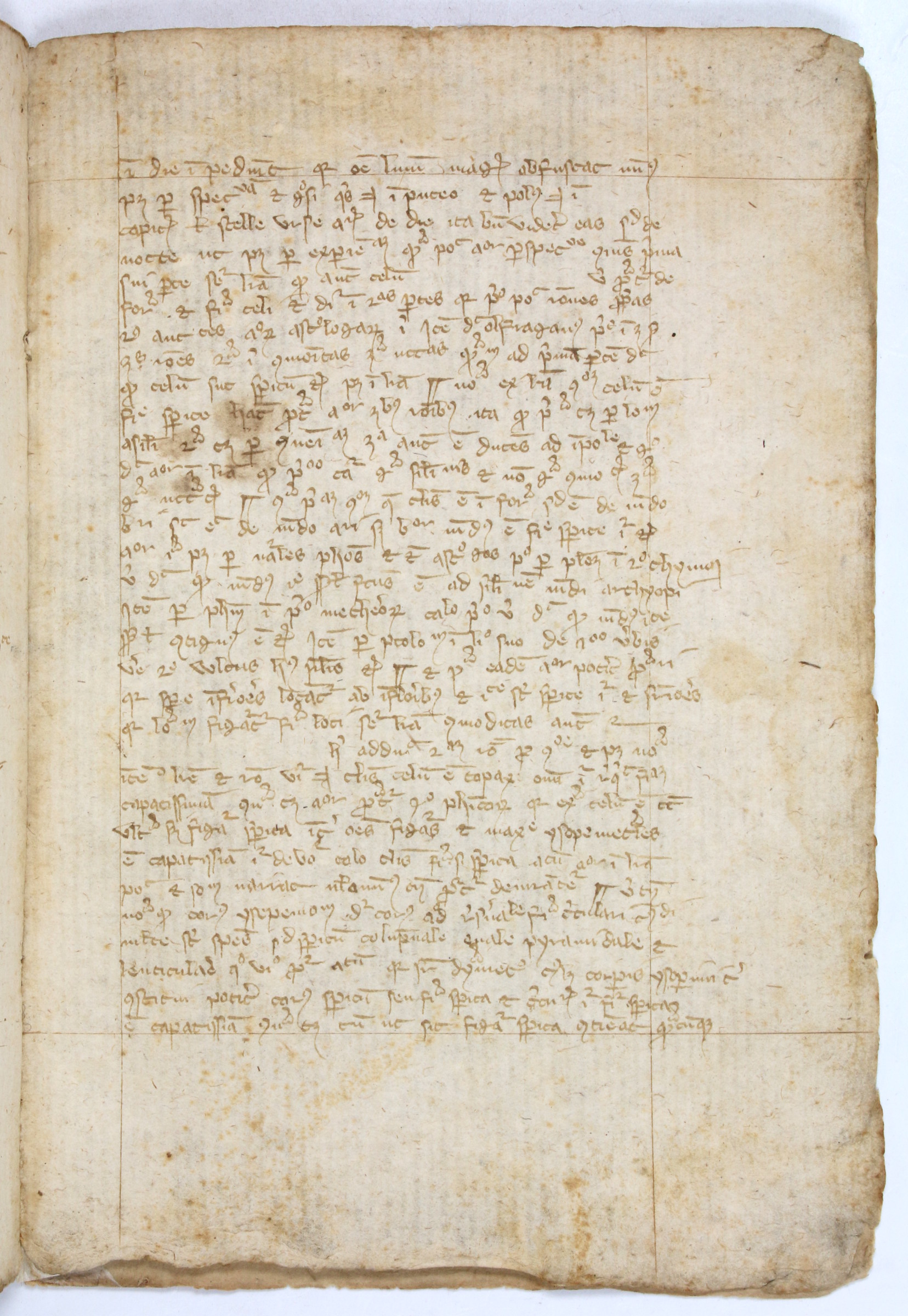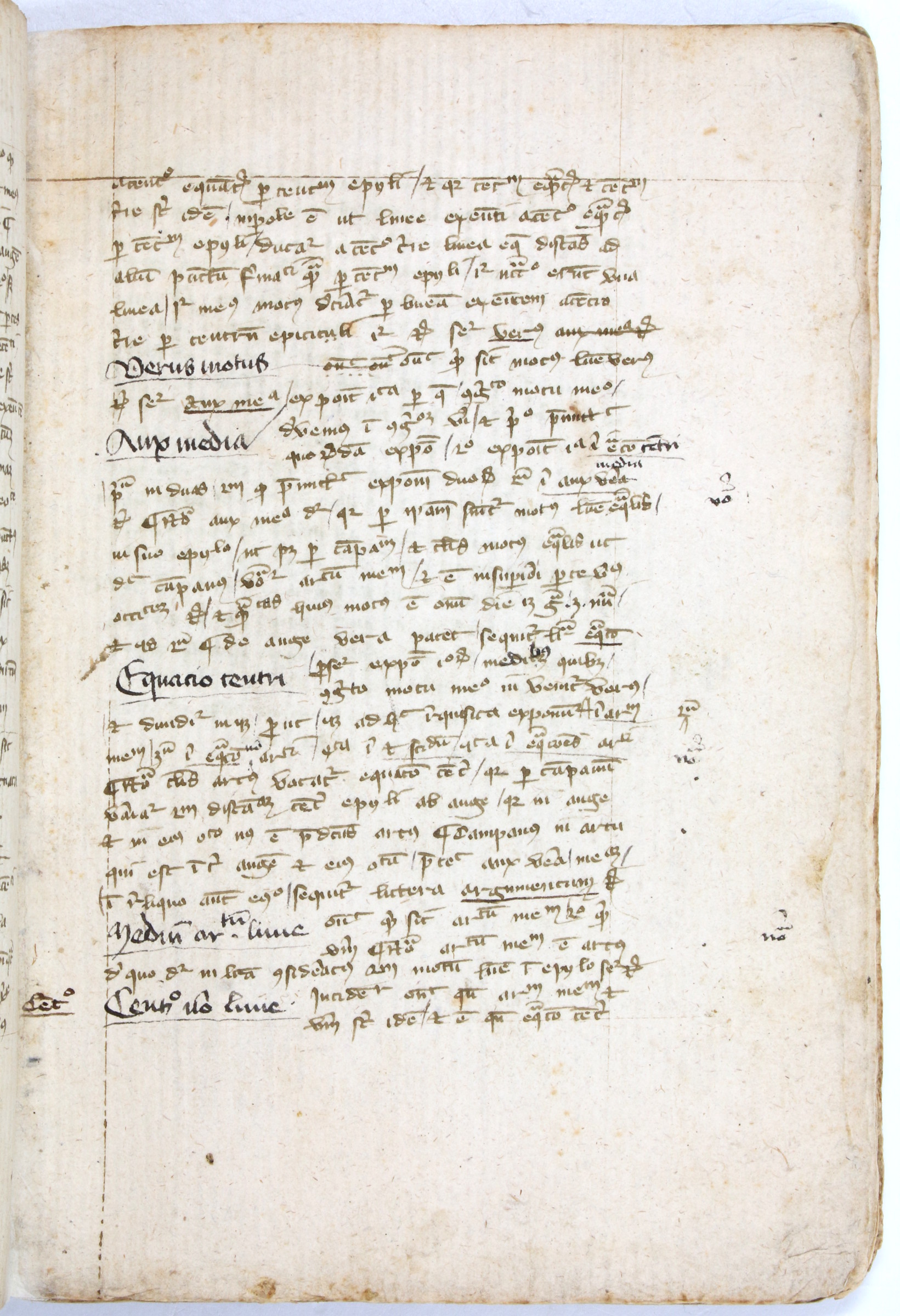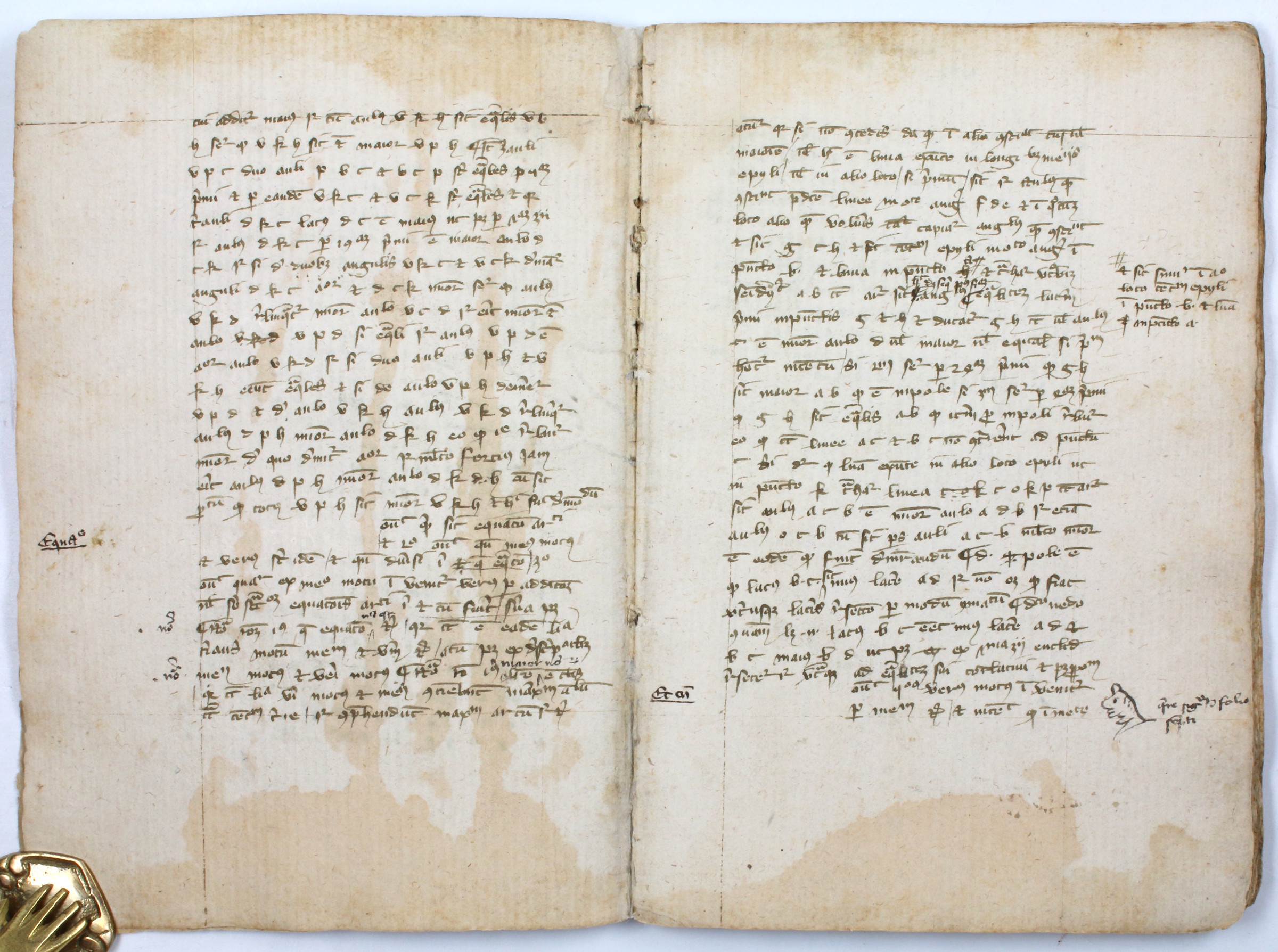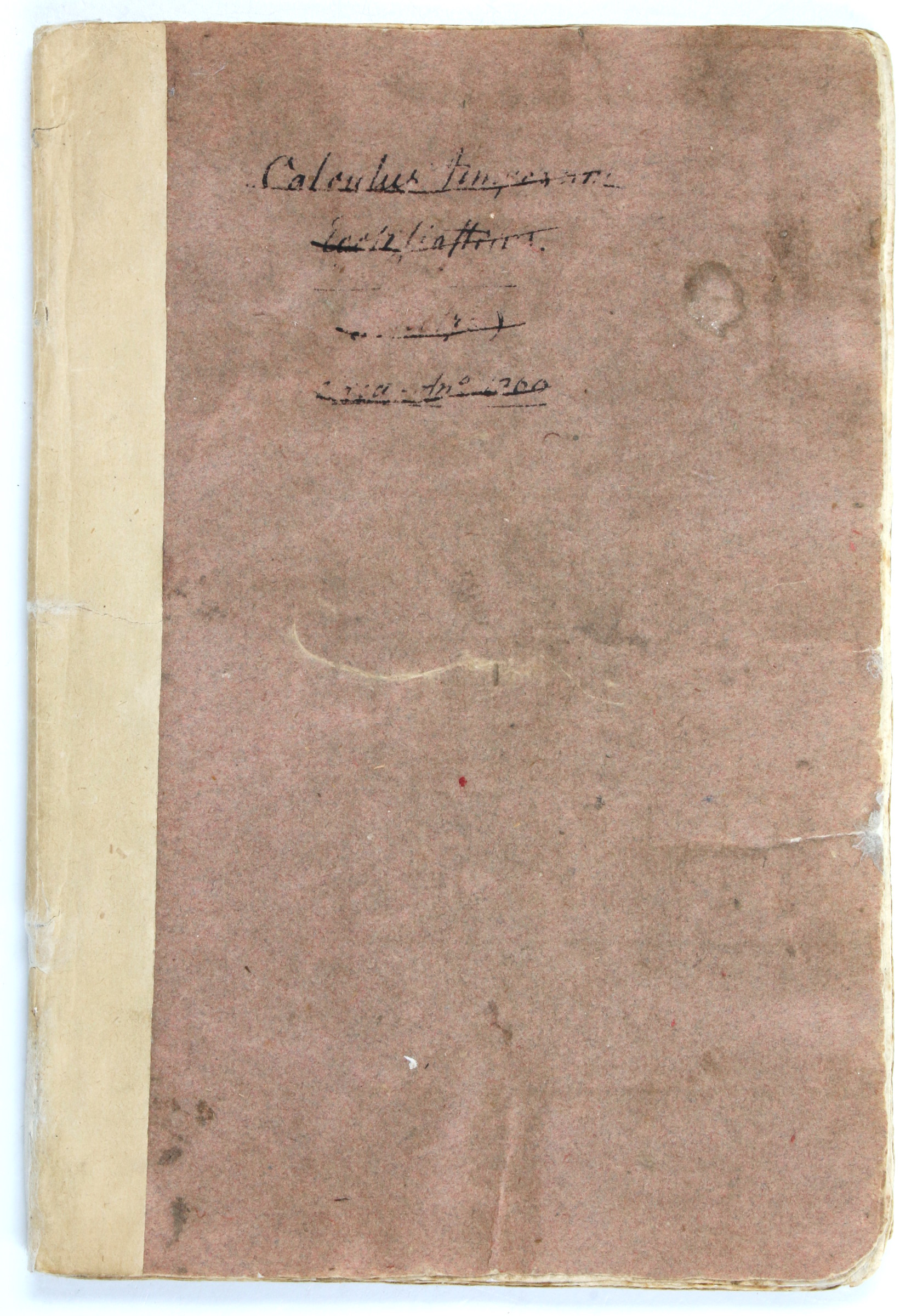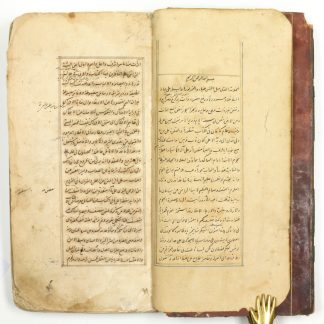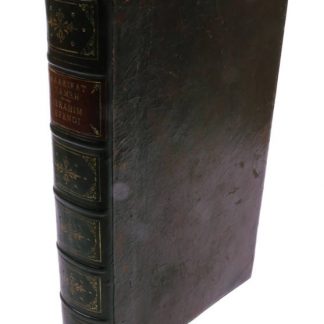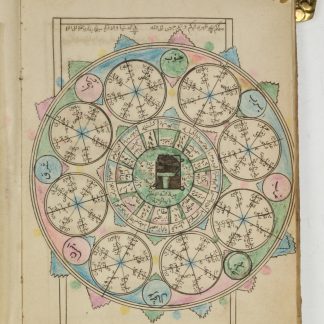Manuscript on the motion of the sun and stars, from the Bibliotheca Phillippica
Calculus temporum ecclesiasticus.
Small 4to. 30 ff. Latin manuscript on paper. Brown ink in early bastarda. 19th century paper wrappers.
€ 95,000.00
With no other known textual witnesses, this extremely interesting Latin calendrical manuscript must be considered a unique work, possibly of English origin. It was formerly the property of the bibliophile Sir Thomas Phillipps (1792-1872), who lends the work its title (and short catalogue description) on its wrappers.
It appears likely that the manuscript had not been entirely completed by its scribe when it was bound, as there are a number of spaces left open in the text for diagrams which were never drawn in, as well as spaces for catchwords in the left margin of the pages (a later owner has completed a few of these). Throughout the manuscript, the text makes reference to these non-existent diagrams; these were perhaps intended to contain computational tables or similar, although the incipit does indicate significant astronomical content when it describes the "motus planetarum". The three final leaves, which are penned in a slightly different, but likewise contemporary hand, may be an attempt to complete the work textually.
The paper itself is heavy, rather crude in manufacture, showing two watermarks: the first, three flowers on stems growing from a single bulb; the second, apparently two circles, one crossed diagonally. That the manuscript was written on paper at such an early date as the mid-14th century is striking: this early example of a European manuscript on paper, rather than vellum, would indeed be exceptionally early if it is in fact English, where paper manuscripts appear later than on the continent.
Altogether, a fascinating example of a unique 14th century manuscript in progress, and one with a rather unique construction, as well as no other surviving copies. The most notable previous owner of the manuscript was Sir Thomas Phillipps, who amassed one of the greatest private manuscript collections in English history. Phillipps's description is pasted to the inside front cover, and the first leaf shows "Phillipps Ms. 23256" inked in Phillipps's own hand in the lower margin.
1) Sir Edward Dering (1598-1644), antiquary and collector.
2) Offered by Sotheby & Son, Catalogue of a valuable collection of autograph letters of distinguished persons, original documents, &c., 20 May 1831, lot 147.
3) A note in pencil to inside front cover states "Dering Sale" with a faint date of 1865, apparently referring to the fourth and final sale, by Puttick & Simpson, of Dering's library.
4) Sir Thomas Phillipps, 1st Baronet (1792-1872), with notes in his hand on the upper cover and his catalogue number on the first page.
5) Later in the library of the printer and antiquarian George Maynard (1850-1917) of Worcester, Mass., with his notes on the manuscript and a partial transcription laid in.
6) Thence to the lawyer and collector Eben Francis Thompson (1859-1939) of Worcester, Mass.; his name in pencil on an old envelope in which the MS was once retained.
7) Later reportedly the estate of the late Calvin Israel, professor or English at SUNY Geneseo and friend of Samuel Beckett.
Small 4to (154 x 225 mm). 30 ff. Latin manuscript on paper (incipit: "Iste liber exponit itaque supponit in tabulam ad [hum...dum? - contraction] veros motus planetarum et passiones que accedunt planetis ex suis motibus [...]"). Brown ink in an early, heavily abbreviated bastarda hand; final three ff. in slightly later (still quite contemporary) hand. 19th century paper wrappers, titled in the hand of Sir Thomas Phillipps on front wrapper.
Minor waterstaining throughout; quite well preserved.
Schoenberg Database 72245. Phillipps MS 23256 (Catalogus librorum manuscriptorum in bibliotheca D. Thomae Phillipps, pt. 4 [1871]: "Calculum Astronomicum, & Mathematicum de Motu Solis, & Astrorum ... Dering Mss., Sale 674"). Not listed by In Principio index.

